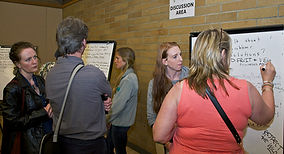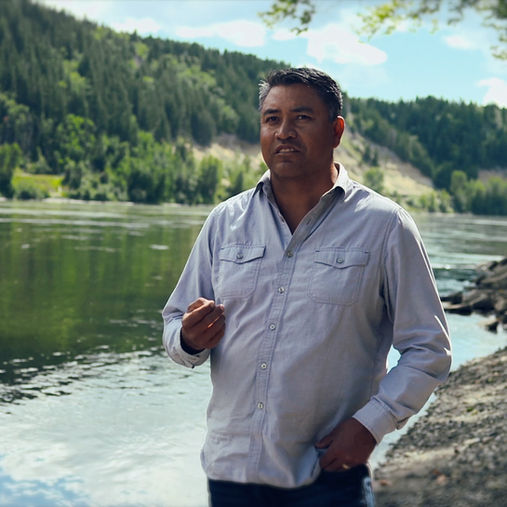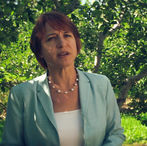LANDSCAPE LISTENING
An approach to understanding climate change and solutions
Beyond Climate represents the most recent segment in Ian Mauro’s trilogy of climate change films across Canada, which also includes Qapirangajuq: Inuit Knowledge and Climate Change (Co-Directed with acclaimed Inuk filmmaker Zacharias Kunuk) and Climate Change in Atlantic Canada. For each of these projects, Mauro and his colleagues listened to the stories, wisdom and observations of people across the landscape. The films show that all Canadians are being impacted by but also finding solutions to climate change.

Some people think climate change is a slow process, but it’s not. You can actually document it with a camera, especially when you’re around local people who are observing the changes in the context of their daily lives. Just ask a farmer, fisher, or First Nations person. For Beyond Climate, we spent a couple of years shooting the film, talking to people across the entire Province, and the impacts we documented were staggering. The film addresses some of the most pressing issues - such as pipelines, tankers and Indigenous rights - facing BC and the country.
We interviewed over 50 people for this project and quickly realized that BC is a sentinel province for climate change. On the one hand, BC is being hammered by climate extremes, which are radically altering the ecosystems as well as the human communities and economies that are supported by them. On the other, BC is a province leading the way in terms of solutions, from Indigenous stewardship of the lands and waters to early implementation of a province-wide carbon tax and Vancouver working to becoming the “greenest city in the world by 2020”. It’s an amazing landscape to understand both climate impacts and solutions.
At one point, Drs. Mauro and Suzuki along with a larger team, conducted participatory screening events in 12 communities across coastal BC on a “Listening Tour.” These interactive events engaged youth and the larger communities in conversation, artmaking, video booths, and a screening of a rough cut of the film to seek feedback from citizens about its initial framing and findings. We conducted more interviews, re-edited the film, and iteratively built the narrative - from the ground up - to ensure that the project reflects the perspective of the people and communities involved.


Combining these principles of participatory filmmaking, with social and environmental sciences, Beyond Climate represents research and film as one. Cinema is a very important part of this, as it helps weave together people, place, and perspectives, while so effectively taking viewers into these ecosystems, cultural landscapes, and lived realities of climate change.
The more local, visual and interactive we make climate change, the more likely people will be willing to act, and become part of the solution. Engage with this film, engage with your community, and engage in making climate solutions possible across local, national, and global landscapes.

























